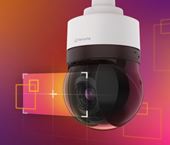The survey, conducted by the Office of the Biometrics and Surveillance Camera Commissioner (OBSCC) in the second half of 2022, asked all 43 police force areas in England and Wales, as well as the British Transport Police, the Civil Nuclear Constabulary, the Ministry of Defence, and the National Crime Agency, about their use and governance of public surveillance camera systems including on drones and helicopters, body-worn video, ANPR (automatic number plate recognition), and any other relevant systems.
Thirty-nine responses were received out of a possible total of 47. Key findings include that:
- at least 18 respondents say that their external camera systems use equipment about which there have been security or ethical concerns (including Dahua, Hikvision, Honeywell and Huawei, and Nuuo)
- at least 24 respondents say that their internal camera systems use equipment about which there have been security or ethical concerns (including Dahua, Hikvision, Honeywell and Huawei, and Nuuo)
- at least 11 respondents say their ANPR systems use equipment about which there have been security or ethical concerns
- at least 2 respondents use cameras made by Hikvision in their body-worn video systems - however, after further enquiries, a new update issued since the original survey was conducted, clarified that actually no constabularies were using Hikvision body-worn systems.
- 23 of the 31 respondents who said they operate cameras on drones / unmanned aerial vehicles (variously with video, audio, and thermal imaging and/or night vision capability), said they were aware of security or ethical concerns about the manufacturer of their drones, Chinese company, DJI
Biometrics and Surveillance Camera Commissioner Fraser Sampson said: "It is abundantly clear from this detailed analysis of the survey results that the police estate in the UK is shot through with Chinese surveillance cameras. It is also clear that the forces deploying this equipment are generally aware that there are security and ethical concerns about the companies that supply their kit.
There has been a lot in the news in recent days about how concerned we should be about Chinese spy balloons 60,000 feet up in the sky. I do not understand why we are not at least as concerned about the Chinese cameras 6 feet above our head in the street and elsewhere.
Clearly it is vital sometimes that the police must be able to use intrusive surveillance technology in public places. But if they want the public to trust them to do so, they must be able to persuade us, not only that they are working partners and providers that can be trusted, but also that they will use the technology available to them lawfully, responsibly and according to a set of clear agreed principles.
Parliament has already acted to curtail the use of equipment made by several Chinese manufacturers from some areas of public life where security is key. Myself and others have been saying for some time that we should, both for security and ethical reasons, really be asking ourselves whether it is ever appropriate for public bodies to use equipment made by companies with such serious questions hanging over them."
The OBSCC sent the survey to the chief officers of the 47 policing bodies in June 2022. The document followed the format of earlier surveys conducted by the Surveillance Camera Commissioner in 2017 and 2019. The response rates for previous surveys had been 100%, but the rate for the 2022 survey fell to 91% (39 out of a possible 47) despite responses being accepted more than 3 months after the initial deadline.
The survey report notes that the 2022 return was “disappointing [with] some noticeable absences in returns this time, including some of the larger police forces.”
A list of the bodies that did respond is included in an appendix at the end of the report. The 8 which did not complete the survey were: City of London Police, Gloucestershire Police, Greater Manchester Police, Gwent Police, Merseyside Police, National Crime Agency (NCA), South Yorkshire Police, Thames Valley Police.



















